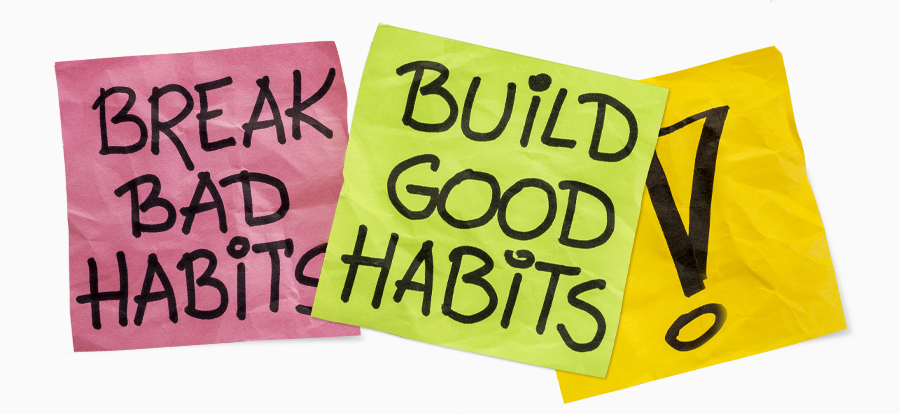I am your greatest asset or heaviest burden.
I will push you up to success or down to disappointment.
I am at your command.
Half the things you do might just as well be turned over to me,
For I can do them quickly, correctly, and profitably.
I am easily managed, just be firm with me.
Those who are great, I have made great.
Those who are failures, I have made failures.
I am not a machine, though I work with the precision of a
machine and the intelligence of a person.
You can run me for profit, or you can run me for ruin.
Show me how you want it done. Educate me. Train me.
Lead me. Reward me.
And I will then…do it automatically.
I am your servant. And I am your master…
Who am I?
”
The author of this powerful description is unknown. The title is “Asset or Liability: Who Am I?” The last line is answering that question is… “I am a habit.”
Good and bad habits are tiny daily choices that accumulate. Each choice is a small wire that is woven together with hundreds of other little choices. Eventually, these wires form a strong cable. By the time we realize we have either a good or a bad habit, the habit has us.
Most of our daily choices are made automatically without even thinking about them. To change our habits, we first need to be aware of them. With the ancient practice of mindfulness and the modern techniques of metacognition – thinking about our thinking – we can work backward from the habit to the daily practices that form it. To change the habit, we need to change those practices.
Our habits make or break us. A habit is a learned behaviour causing us to think and act automatically. Many times, we’re not aware of the hundreds of tiny and bigger habits we’ve acquired over our lifetime. Each habit piles on top of another and shapes us into who we are today. These habits create our reality.
In her Positive Psychology article, Out With the Old, In With the New: Use the Science of Habits to Make Your Goals Stick This Time!, Karen Deppa draws on the work of Wendy Wood, Provost Professor of Psychology and Business at the University of Southern California, to summarize a few ways to form life-enriching habits. Wood is the author of Good Habits, Bad Habits: The Science of Making Positive Changes that Stick. Wood’s research shows that nearly 50% “of our behaviours are attributable to habits that we repeat in the same context, often while our thoughts are engaged elsewhere.”
That powerful “unmindfulness” or automatic thinking so easily leads to unwanted habits driving our behaviour. This feeds the guilt-helplessness cycle embedding the damaging habit even deeper into our psyche.

Here’s a few of Wood’s key points that may help in planning for new habits for the New Year:
- Three factors that work in tandem for good or bad habits are context or situations that trigger habitual responses, behaviour repetition that becomes automatic, and rewards that make the experience “positive, enjoyable, engaging, rewarding, and fun.”
- Build your habits in the times when you have the most control and minimal interruptions.
- Practice the behaviours with others or get friends, family, etc., to help you.
- Remove barriers and set up your environment to make the behaviour easier.
- Combine enjoyable “want” experiences with your desired “should” behaviour.
- Find ways to make the behaviour fun and meaningful.
- Remove cues that trigger the habit.
- Make the bad habit harder to practice.
- Replace the unwanted habit with a new, more productive habit.
Cognitive Behavior Therapy and much other research shows we’re not stuck with any of our habits. It may be neither quick nor easy (Wood says two to three months), but we can change any habit.
As Aristotle taught, “Excellence is an art won by training and habitation. We do not act rightly because we have virtue or excellence, but rather have those because we have acted rightly. We are what we repeatedly do. Excellence then is not an act, but a habit.”
About the author
For over three decades, Jim Clemmer’s keynote presentations, workshops, management team retreats, seven bestselling books, articles, and blog have helped hundreds of thousands of people worldwide.
To learn more about The Clemmer Group, visit them online at clemmergroup.com.
Contents of this article remain the property of the author and/or publisher.
 Drive Results in Your Organization
Drive Results in Your Organization